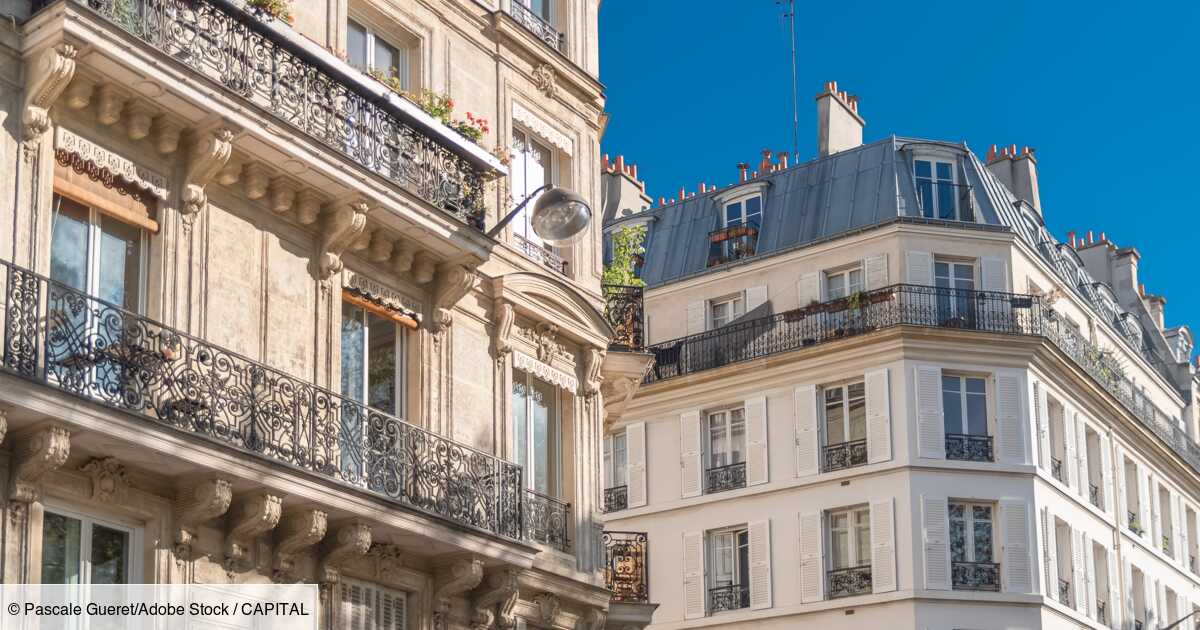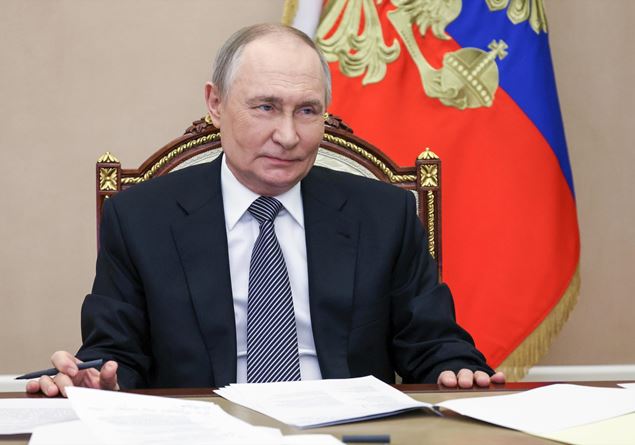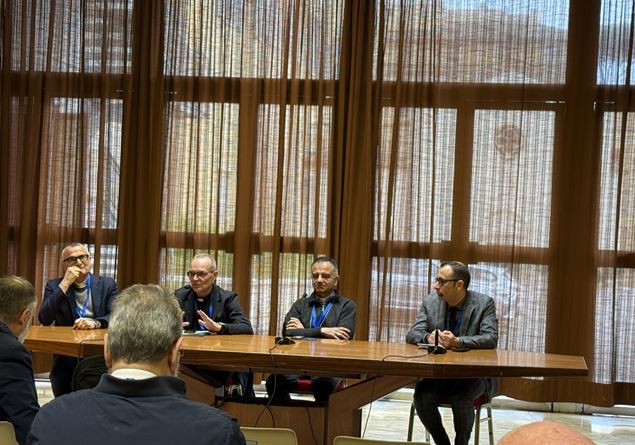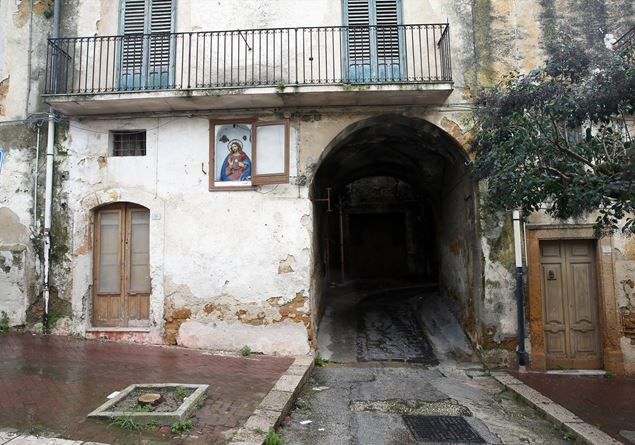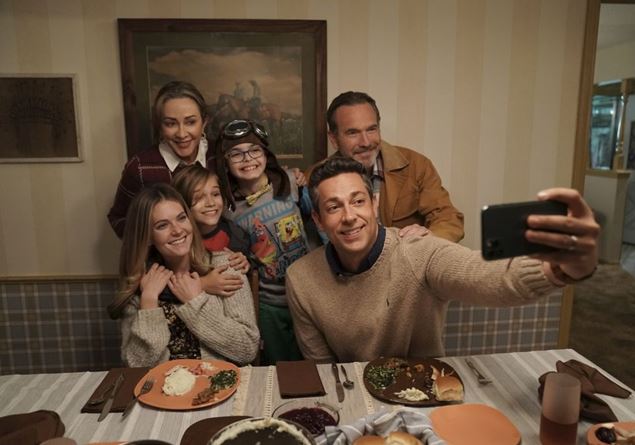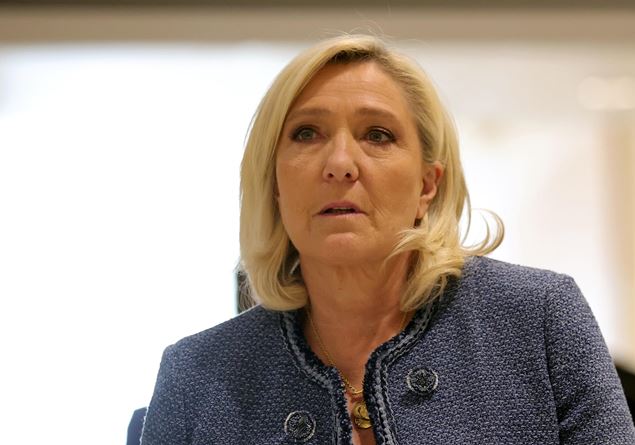Giulia De Florio, 40 years old, professor of Russian language and culture and president of Memorial Italia.
A quarter of a century in power. It is that of Vladimir Putin, That on March 26, 2000 he was elected for the first time president of the Russian Federation and since then he remained firmly in command of the country – in the role of leader of the Kremlin and, for a mandate, in that of Premier – gradually transforming Russia into an increasingly authoritarian and dictatorial regime. To make an analysis of the 25 years of power of Putin is Giulia De Florio, Professor of Russian language and culture at the University of Parma, writer, translator, president of Memorial Italythe Italian “branch” of the NGO Memorial founded in Russia which denounces the crimes of the Soviet regime and, today, the violations of human rights, Nobel Peace Prize 2022.
Twenty -five years in command of Russia in an undisputed way, without a real opposition. How and why did it happen?
«In the current Russian Federation in the early 2000s, the democratic processes that underlie a change of power with a certain frequency or that in any case ensure this possibility. Although formally also in Russia this possibility of Fosse, we are abbbbbia since the country has become more and more a fake democracy- democratic institutions have never fallen from above, it takes a habit. And the Russian population did not have it. The 90s were a period of strong imbalance of powers: if we think that in ’93 Parliament in Moscow was bombed by the tanks, it is clear that the idea of democracy embodied in the institutions was certainly very weak. Therefore the regime we see today is certainly the result of a historical legacy and a series of geographical, territorial factors, starting from the vastness of the Russian territory, the inequality inside, the fact that the great magnitude of the population is of low class while a small elute in the capital and St. Petersburg holds wealth and power “.
Many say that the Russian people historically relied on the figure of the leader, of the strong man. This would explain Putin’s ascent and the longevity of his power. Is it so?
«Often we speak of the Russian people, but in reality this definition in my opinion is not correct because it tends to give homogeneity to a set of people in a state that are not at all assimilable. This, however, is one of the interpretations that we hear more about: the theory of strong man, whether it was the Tsar, Stalin or Putin. I don’t venture to say it’s really that way. What I can see is that in the history of Russia the relationships between citizens and the state, from the Soviet experience onwards, have always been a total lack of trust from the individual towards the state that should represent him, of indifference and lack of will of participation. This is what also happened with the Putin regime. The Russian population tends not to spoil themselves in state affairs and does not want the state in turn to go into the private affairs of citizens. This was very clear during Covid’s Pandemic: nobody in Russia wanted to vaccinate because, despite the fact that Putin had Largo consent on this matter, what comes from above, from the state for the Russian citizen is always something that generates suspicion. An attitude that, however, then does not prevent people from voting for Putin, from supporting him even if abstractly. Until personal interests are affected, Russian citizens do not intrude on political issues. A way of doing that, on the other hand, implies that there is never a real active participation in politics intended as management of public affairs. And who favored the affirmation of a figure like Putin’s “.
So the consent of the Russians towards Putin is still, in fact, very high?
«If by consent we mean alignment or in any case not dissent, then it is certainly high. How then this consent is obtained is another matter. The consent for Putin is obtained with a policy of terror, fear and repression that eliminates any form of open dissent. On the other hand, there is also a great attractive strength in the construction of the narrative of what the Russian Federation is today: war is an Enrome identity glue, it has always been and this Putin knows it well. The insistence on militarization, on aggression, on the strength of the country is a reason that resonates emotionally in Russian citizens. Putin, moreover, has risen to power with the second war in Cacenia in progress and proved to be able to manage a war, impressing the Russians. Then came the following conflicts. On the war the Russia Federation that Putin offers citizens, obviously supported by a powerful propaganda machine, rests very much. We can identify a very important passage in the way of thinking of Russian citizens: the slogan spread in the 90s compared to the war was “provided that it no longer repeats itself”, because those generations had good in mind what had happened in the Second World War. From a certain point onwards we started to hear the slogan “we can repeat it”, that is, we can go back to winning. That is to say, if you try to touch us, we are ready to react strongly. This is a key point in the change of self -perception by the Russians: the idea of a nation that wants to regain possession of a force and an importance that, in the Putinian narrative, has been removed. The invasion and war on Ukraine was based on this perception. When a leader moves such a step he knows he has a consent, at least formal approval ».
But then there are the many voices of internal dissent, who perhaps struggle to us to be known, except for some more famous cases such as that of Aleksej Navalny. Memorial calculates that there are 683 political prisoners in Russian prisons.
«They are voices that even more in such a dark moment should not be underestimated and forgotten. It should be remembered that consensus often does not correspond to a total adhesion to a political system, but to a passive attitude of non -participation, dictated by the fear of the consequences, of the risks that run when dissent is expressed (prison, persecution). Here, in Russian history, that assumption of responsibility based on the belief that your individual action has an effect on politics and society has often been missing. An attitude that is taught by democracy “.
(Photo Ansa: the president of the Russian Federation Vladimir Putin)




